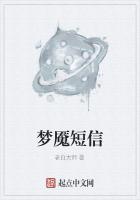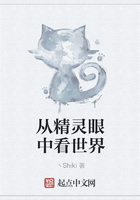"In the daytime the keys of the castle do not leave the belt of the old steward; when curfew is rung and he has made his rounds to make sure that all the doors are fast shut, he gives them up to William Douglas, who, if he stays up, fastens them to his sword-belt, or, if he sleeps, puts them under his pillow. For five months, Little Douglas, whom everyone is accustomed to see working at the armourer's forge of the castle, has been employed in ****** some keys like enough to the others, once they are substituted for them, for William to be deceived. Yesterday Little Douglas finished the last.
"On the first favourable opportunity that her Majesty will know to be about to present itself, by carefully questioning the light each day, Little Douglas will exchange the false keys for the true, will enter the queen's room, and will find her dressed, as well as Miss Mary Seyton, in their men's clothing, and he will go before them to lead them, by the way which offers the best chances for their escape; a boat will be prepared and will await them.
"Till then, every evening, as much to accustom themselves to these new costumes as to give them an appearance of having been worn, her Majesty and Miss Mary Seyton will dress themselves in the suits, which they must keep on from nine o'clock till midnight. Besides, it is possible that, without having had time to warn them, their young guide may suddenly come to seek them: it is urgent, then, that he find them ready.
"The garments ought to fit perfectly her Majesty and her companion, the measure having been taken on Miss Mary Fleming and Miss Mary Livingston, who are exactly their size.
"One cannot too strongly recommend her Majesty to summon to her aid on the supreme occasion the coolness and courage of which she has given such frequent proofs at other times."
The two prisoners were astounded at the boldness of this plan: at first they looked at one another in consternation, for success seemed impossible. They none the less made trial of their disguise: as George had said, it fitted each of them as if they had been measured for it.
Every evening the queen questioned the light, as George had urged, and that for a whole long month, during which each evening the queen and Mary Seyton, although the light gave no fresh tidings, arrayed themselves in their men's clothes, as had been arranged, so that they both acquired such practice that they became as familiar to them as those of their own ***.
At last, the 2nd May, 1568, the queen was awakened by the blowing of a horn: uneasy as to what it announced, she slipped on a cloak and ran to the window, where Mary Seyton joined her directly. A rather numerous band of horsemen had halted on the side of the lake, displaying the Douglas pennon, and three boats were rowing together and vying with each other to fetch the new arrivals.
This event caused the queen dismay: in her situation the least change in the castle routine was to be feared, for it might upset all the concerted plans. This apprehension redoubled when, on the boats drawing near, the queen recognised in the elder Lord Douglas, the husband of Lady Lochleven, and the father of William and George. The venerable knight, who was Keeper of the Marches in the north, was coming to visit his ancient manor, in which he had not set foot for three years.
It was an event for Lochleven; and, some minutes after the arrival of the boats, Mary Stuart heard the old steward's footsteps mounting the stairs: he came to announce his master's arrival to the queen, and, as it must needs be a time of rejoicing to all the castle inhabitants when its master returned, he came to invite the queen to the dinner in celebration of the event: whether instinctively or from distaste, the queen declined.
All day long the bell and the bugle resounded: Lord Douglas, like a true feudal lord, travelled with the retinue of a prince. One saw nothing but new soldiers and servants passing and repassing beneath the queen's windows: the footmen and horsemen were wearing, moreover, a livery similar to that which the queen and Mary Seyton had received.
Mary awaited the night with impatience. The day before, she had questioned her light, and it had informed her as usual, in reappearing at her eleventh or twelfth heart-beat, that the moment of escape was near; but she greatly feared that Lord Douglas's arrival might have upset everything, and that this evening's signal could only announce a postponement. But hardly had she seen the light shine than she placed her lamp in the window; the other disappeared directly, and Mary Stuart, with terrible anxiety, began to question it. This anxiety increased when she had counted more than fifteen beats. Then she stopped, cast down, her eyes mechanically fixed on the spot where the light had been. But her astonishment was great when, at the end of a few minutes, she did not see it reappear, and when, half an hour having elapsed, everything remained in darkness.
The queen then renewed her signal, but obtained no response: the escape was for the same evening.
The queen and Mary Seyton were so little expecting this issue, that, contrary to their custom, they had not put on their men's clothes that evening. They immediately flew to the queen's bed-chamber, bolted the door behind them, and began to dress.
They had hardly finished their hurried toilette when they heard a key turn in the lock: they immediately blew out the lamp. Light steps approached the door. The two women leaned one against the other; for they both were near falling. Someone tapped gently. The queen asked who was there, and Little Douglas's voice answered in the two first lines of an old ballad--
"Douglas, Douglas, Tender and true."
Mary opened, directly: it was the watchword agreed upon with George Douglas.
The child was without a light. He stretched out his hand and encountered the queen's: in the starlight, Mary Stuart saw him kneel down; then she felt the imprint of his lips on her fingers.
"Is your Majesty ready to follow me?" he asked in a low tone, rising.















